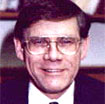The second in a series of three articles based on the Process Preaching seminar that Pastor Larson has taught for the past five years in the Kairos Program at Luther Seminary.
Speaking or preaching freely is a term that I use to describe the natural way that people speak. When we preach freely, we are able to connect with our congregation in ways that help them better listen and understand. We have all had the experience of listening to a lecture being read from a manuscript and then, having the professor step aside for a few moments to speak freely. I have literally seen members of an audience come alive when a professor interrupts his/her prepared remarks and begins to speak freely.
Speaking freely is such a powerful way of communicating that it literally can wake people up. Why does speaking freely communicate so much better in an oral setting than reading out loud or reciting a memorized text?
Here are some of the most important reasons this is true.
1. Everything Works Together
When you observe people who are speaking freely, you will notice that their gestures, facial expressions, and their entire body language accompany their speaking voice perfectly. You do not have to teach people how to do this because it comes completely naturally. On the other hand, when people read or recite a memorized text, their gestures and expressions need to be planned and inserted at the proper moment. Good oral communication needs to involve our entire being. Speaking freely lets this occur in a completely natural way.
2. Eye Contact/Eye Expression
Cicero, who enthralled Rome with his eloquence of speech one hundred years before Christ, had this to say about the importance of the eyes in delivering a speech. “In delivery, next to the voice in effectiveness is the countenance; and this is ruled over by the eyes. The expressive power of the human eye is so great that it determines, in a manner, the expression of the whole countenance.”1 When we preach freely, the congregation can see our eyes and how expressive they are. This adds a great deal to the power of our delivery.
3. What We Say Seems More Heartfelt
Preaching freely makes our sermons seem to come more directly from us and from our heart. In my early years of ministry, I read my sermon manuscripts. During that time, I often had parishioners ask me if they sent out sermon manuscripts from the seminary every week. I may have poured my heart into writing my sermons, but they did not seem to be coming from my heart when I read them to the congregation. This is a phenomenon of public speaking in general. When we read a fixed text, it seems like the thoughts and ideas of that text belong to someone else. When we speak these same thoughts freely, they seem to be our own.
4. The Real Self is Revealed
Speaking freely reveals our real self to the world. Every person is different. We each have our own personality, and when we speak freely, that personality shines through. This is important in preaching because each of us is the “earthen vessel” through which God has chosen to communicate the great good news of the Gospel. We will be most effective in our communication from the pulpit when we truly show our authentic selves.
5. Putting Passion into Preaching
Growing up Lutheran I was not exposed to a lot of passionate preaching. There wasn’t any hell, fire, and brimstone preaching going on in our rather staid Lutheran pulpits. However, the great preachers that affected my life, as low-key as they often were, managed to always put real, heartfelt passion into their preaching. Preaching freely enables us to do this very easily. We may not yell or pound the pulpit but the congregation will be able to see and hear the passion in both our voice and our countenance during our delivery.
As a grandfather, I enjoy reading and telling stories to my grandchildren. When we have a grandchild staying with us overnight, we read them a couple of bedtime stories of their choice. Invariably they get sleepy and by the time the second book is read they are sound asleep. When we have our grandchildren up at the cabin and we are sitting around the campfire telling stories, their eyes get big as saucers. They never fall asleep. What makes the difference is the language that is used and the way that things are said.
We live in a time when people are no longer well trained in the art of listening. People are used to multi-media presentations that are dramatic, colorful, and very effective. These presentations appeal to all the senses of the audience. Listeners are able to sit back, relax and let the message come to them. If we speak freely, we can still compete in this environment. There is still nothing that has the powerful effect of dynamic public speaking. Nowhere does this hold truer than in the world of preaching. The goal of Process Preaching is to help pastors speak and preach the Gospel in such a way that people will listen and respond.
1Charles W. Koller, “How to Preach Without Notes” (Grand Rapids, Backer, 1997) 35.

